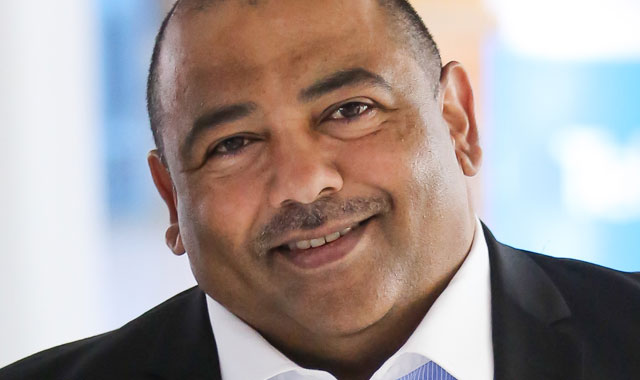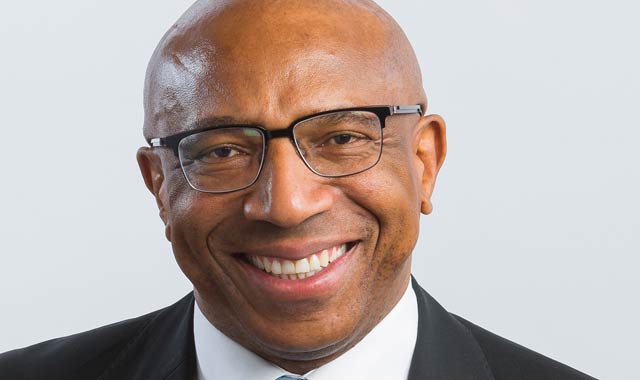
Any Internet service provider that is worried that Telkom’s newly spun-off wholesale and network services arm, Openserve, will provide unfair advantages to the telecommunications operator’s retail arm is welcome, at any time, to come and study the company’s books.
That’s the promise of former Telkom wholesale and networks MD and now Openserve head Alphonzo Samuels, who said in an interview with Business Times this week that the new business, launched on Tuesday, will provide network services to all industry players fairly, equitably and transparently.
It’s so serious about this promise, Samuels says, that Telkom created a new name for the business and is moving the company into its own office building with its own security access cards. Employees of Telkom’s retail services arm will only be allowed access in the same way as all other industry players — as visitors.
It’s a radical departure from the past. Part of the changes sweeping through Telkom were brought about by the settlement agreement it reached with the Competition Commission in 2013 for previous anticompetitive behaviour. But, unlike business separations at many other incumbent operators around the world — where antitrust investigations typically led to enforced separations — Telkom is doing more than is required of it by the Competition Commission. “Much more,” says Samuels.
“We are doing this completely of our own volition. We believe it makes economic sense. Prices can only come down if I can drive up utilisation of the network. For us, this is a business imperative,” he says.
Both the Competition Commission and the Independent Communications Authority of South Africa were told about Openserve at the same time as the rest of the market, Samuels adds.
“There will be no regulatory enforcements or audits that will be performed other than the normal audits required under the settlement with the commission and the conditions imposed as part of Telkom’s acquisition of Business Connexion.”
Telkom CEO Sipho Maseko says that “deep functional separation” is about removing a “critical stumbling block” in the way of Telkom’s path to success.
“Through this separation, Telkom will improve its customer focus and establish clearer lines of accountability,” Maseko says. “As a standalone business unit within Telkom, Openserve will be autonomous and will be responsible for its own profit and loss account.”
It signals a remarkable shift in approach for a company that was found by the competition authorities in 2013 to have abused its monopoly in the 1990s and 2000s to the detriment of ISPs and other rivals.
But it’s a new approach that Maseko and Samuels both appear determined to implement. They say that Telkom’s future success is contingent on the company playing nicer with the industry. Instead of shutting out competitors, as it’s done in the past, Telkom’s new mandate, through Openserve, is to entice rivals to maximise their use of the company’s extensive fixed-line and wireless infrastructure. Through higher utilisation, it hopes to drive down prices through economies of scale.
In the past, Telkom treated bandwidth as a scarce resource, to be priced accordingly. It’s now turned the model on its head: bandwidth is a commodity and success is only possible by selling a lot of it.
Of course, analysts are quick to point out that Telkom hasn’t suddenly become Mr Nice Guy of its own accord. It’s a change in approach that’s been forced on it through intense competition, they argue.

New fibre rivals such as Dark Fibre Africa and Vumatel are enjoying great success, challenging Telkom’s core business by building open networks into homes and businesses. The operator may have had no choice but to change its operating model.
Openserve is going to do what was until recently unthinkable at Telkom: it will open its telephone exchanges and its base stations to all service providers wanting to deploy their own infrastructure, even if those companies don’t use Telkom’s network to connect their gear.
It’s a step shy of local-loop unbundling, under which Telkom would open its local network – the copper cables into homes and businesses – to rivals. Though Samuels won’t say whether Telkom will embrace local-loop unbundling – it’s a concept it has fought tooth and nail in the past – it may now be considering it.
For now, says Samuels, service providers will be able to “co-locate” equipment in Telkom’s telephone exchanges and at its towers, up to what he calls the “demarcation point”.
ISPs and others should also expect to receive non-discriminatory pricing, including volume discounts that don’t favour one provider over another.
“It’s now up to my team and me to maximise utilisation of the network, irrespective of which service provider or client gets onto that network,” Samuels says. “My competitors going forward are the likes of Vumatel and Dark Fibre Africa. My competitors are not ISPs such as Afrihost and Webafrica – they are my clients.”
- This article was first published in the Sunday Times




